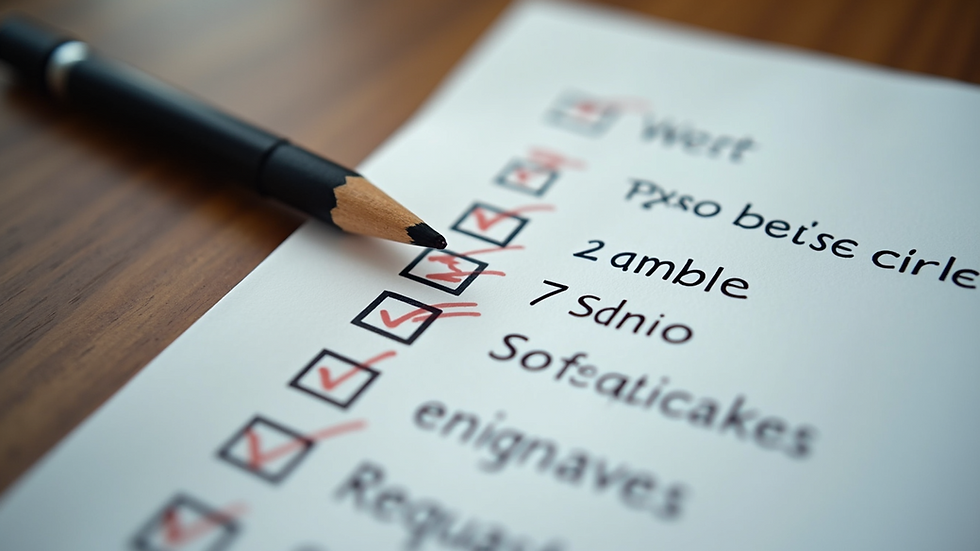Why Soft Skills Matter
- Simeon Soetan
- Sep 22, 2025
- 3 min read
Updated: Sep 23, 2025
In today’s fast-paced business world, technical expertise alone is not enough to drive success. Have you ever wondered why some teams outperform others even when they have similar technical skills? The answer often lies in workplace communication skills and other soft skills. These abilities help teams collaborate effectively, solve problems creatively, and adapt to change smoothly. Investing in soft skills training can transform your team’s dynamics and boost overall productivity.
Let’s explore how enhancing your team with soft skills can make a real difference in your business outcomes.
Why Workplace Communication Skills Matter More Than Ever
Effective communication is the backbone of any successful organisation. When team members communicate clearly, misunderstandings decrease, and projects move forward faster. But what exactly makes workplace communication skills so crucial?
Improved collaboration: Clear communication fosters trust and openness, encouraging team members to share ideas and feedback.
Conflict resolution: Teams with strong communication skills can address disagreements constructively without escalating tensions.
Customer satisfaction: Employees who communicate well with clients build stronger relationships and enhance the company’s reputation.
Efficiency: Clear instructions and feedback reduce errors and rework, saving time and resources.
Imagine a project where every team member understands their role and feels comfortable voicing concerns. The result? Smoother workflows and better outcomes. That’s the power of workplace communication skills.

How Soft Skills Training Can Elevate Your Team’s Performance
You might be wondering, how can you develop these essential skills within your team? This is where soft skills training comes into play. Unlike technical training, soft skills training focuses on interpersonal abilities, emotional intelligence, and problem-solving techniques.
Here’s how soft skills training can benefit your team:
Boosts emotional intelligence: Helps team members understand and manage their emotions and empathise with others.
Enhances adaptability: Prepares employees to handle change and uncertainty with a positive mindset.
Strengthens leadership: Develops skills like decision-making, motivation, and conflict management.
Improves teamwork: Encourages collaboration and respect among diverse team members.
Promotes effective communication: Teaches active listening, clear expression, and constructive feedback.
By integrating soft skills training into your development programmes, you create a more resilient and agile workforce ready to tackle complex challenges.

What are the 7 Soft Skills?
Understanding the core soft skills can help you identify which areas to focus on for your team’s growth. Here are the seven essential soft skills every business should nurture:
Communication: The ability to convey ideas clearly and listen actively.
Teamwork: Collaborating effectively with others to achieve common goals.
Problem-solving: Identifying issues and finding practical solutions.
Adaptability: Adjusting to new conditions and challenges with ease.
Critical thinking: Analysing information objectively to make informed decisions.
Work ethic: Demonstrating reliability, responsibility, and dedication.
Emotional intelligence: Recognising and managing your own emotions and those of others.
Focusing on these skills can create a well-rounded team capable of handling diverse situations and driving innovation.

Practical Steps to Implement Soft Skills Training in Your Organisation
Now that you know the importance of soft skills and which ones to target, how do you implement effective training? Here are some actionable recommendations:
Assess current skill levels: Use surveys, interviews, or performance reviews to identify gaps.
Set clear objectives: Define what you want to achieve with the training, such as improved communication or leadership.
Choose the right format: Options include workshops, online courses, coaching, or blended learning.
Incorporate real-life scenarios: Use role-playing or case studies relevant to your business challenges.
Encourage continuous learning: Provide ongoing support and refresher sessions to reinforce skills.
Measure impact: Track improvements through feedback, productivity metrics, and employee engagement.
Remember, soft skills development is an ongoing journey, not a one-time event. Consistency and commitment are key to seeing lasting results.
Building a Culture That Values Soft Skills
Training alone is not enough if your organisational culture does not support the application of soft skills. How can you create an environment where these skills thrive?
Lead by example: Leaders should model effective communication, empathy, and adaptability.
Recognise and reward: Celebrate employees who demonstrate strong soft skills in their work.
Foster open communication: Encourage transparency and feedback at all levels.
Promote diversity and inclusion: Diverse teams bring different perspectives that enhance problem-solving.
Provide resources: Make learning materials and coaching accessible to everyone.
When soft skills become part of your company’s DNA, your team will naturally perform better and adapt faster to change.
Unlock Your Team’s Potential Today
Enhancing your team with soft skills training is a strategic investment that pays off in improved workplace communication skills, stronger collaboration, and greater innovation. By focusing on these human-centric abilities, you empower your workforce to meet complex challenges head-on and deliver exceptional results.
Are you ready to take your team to the next level? Explore how soft skills training can help you build a more effective, resilient, and motivated team that drives your business forward.
Start and watch your team transform into a powerhouse of communication and collaboration!





This is so crucial to the success of any business
It’s so nice this is still being talked about. Thank you
Great article